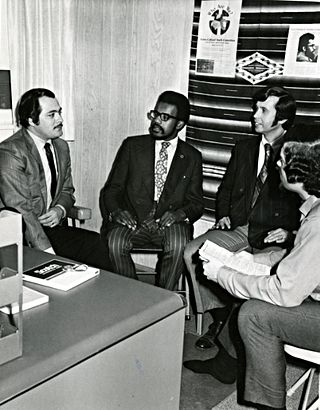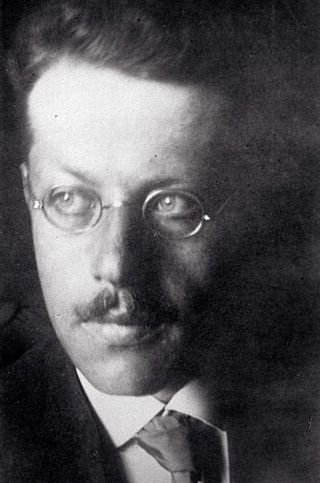Related Research Articles

Emmanuel Levinas was a French philosopher of Lithuanian Jewish ancestry who is known for his work within Jewish philosophy, existentialism, and phenomenology, focusing on the relationship of ethics to metaphysics and ontology.

Dialogue is a written or spoken conversational exchange between two or more people, and a literary and theatrical form that depicts such an exchange. As a philosophical or didactic device, it is chiefly associated in the West with the Socratic dialogue as developed by Plato, but antecedents are also found in other traditions including Indian literature.

Martin Buber was an Austrian Jewish and Israeli philosopher best known for his philosophy of dialogue, a form of existentialism centered on the distinction between the I–Thou relationship and the I–It relationship. Born in Vienna, Buber came from a family of observant Jews, but broke with Jewish custom to pursue secular studies in philosophy. He produced writings about Zionism and worked with various bodies within the Zionist movement extensively over a nearly 50 year period spanning his time in Europe and the Near East. In 1923, Buber wrote his famous essay on existence, Ich und Du, and in 1925, he began translating the Hebrew Bible into the German language reflecting the patterns of the Hebrew language.

Franz Rosenzweig was a German theologian, philosopher, and translator.
Gestalt therapy is a form of psychotherapy that emphasizes personal responsibility and focuses on the individual's experience in the present moment, the therapist–client relationship, the environmental and social contexts of a person's life, and the self-regulating adjustments people make as a result of their overall situation. It was developed by Fritz Perls, Laura Perls and Paul Goodman in the 1940s and 1950s, and was first described in the 1951 book Gestalt Therapy.
Ich und Du, usually translated as I and Thou, is a book by Martin Buber, published in 1923, and first translated from German to English in 1937.

Walter Arnold Kaufmann was a German-American philosopher, translator, and poet. A prolific author, he wrote extensively on a broad range of subjects, such as authenticity and death, moral philosophy and existentialism, theism and atheism, Christianity and Judaism, as well as philosophy and literature. He served more than 30 years as a professor at Princeton University.

Jacob Levy Moreno was a Romanian-American psychiatrist, psychosociologist, and educator, the founder of psychodrama, and the foremost pioneer of group psychotherapy. During his lifetime, he was recognized as one of the leading social scientists.
The transpersonal is a term used by different schools of philosophy and psychology in order to describe experiences and worldviews that extend beyond the personal level of the psyche, and beyond mundane worldly events.
The dialogical self is a psychological concept which describes the mind's ability to imagine the different positions of participants in an internal dialogue, in close connection with external dialogue. The "dialogical self" is the central concept in the dialogical self theory (DST), as created and developed by the Dutch psychologist Hubert Hermans since the 1990s.

Philosophical anthropology, sometimes called anthropological philosophy, is a discipline dealing with questions of metaphysics and phenomenology of the human person.
Dialogue is a conversational exchange.
Economic methodology is the study of methods, especially the scientific method, in relation to economics, including principles underlying economic reasoning. In contemporary English, 'methodology' may reference theoretical or systematic aspects of a method. Philosophy and economics also takes up methodology at the intersection of the two subjects.

Sheila McNamee is an American academic known for her work in human communication and social constructionism theory and practice. She is a Professor of Communication at the University of New Hampshire and founding member, Vice President and board member of the Taos Institute. She has authored numerous, books, chapters, and journal articles. Her work focuses on appreciative dialogic transformation within a variety of social and institutional contexts including psychotherapy, organizations, education, healthcare, and local communities. She engages constructionist practices in a variety of contexts to bring communities of participants with diametrically opposing viewpoints together to create livable futures.
Ivan Boszormenyi-Nagy was a Hungarian-American psychiatrist and one of the founders of the field of family therapy. Born Iván Nagy, his family name was changed to Böszörményi-Nagy during his childhood. He emigrated from Hungary to the United States in 1950, and he simplified his name to Ivan Boszormenyi-Nagy at the time of his naturalization as a US citizen.
Jewish existentialism is a category of work by Jewish authors dealing with existentialist themes and concepts, and intended to answer theological questions that are important in Judaism. The existential angst of Job is an example from the Hebrew Bible of the existentialist theme. Theodicy and post-Holocaust theology make up a large part of 20th century Jewish existentialism.
The double-swing model is a model of intercultural communication, originated by Muneo Yoshikawa, conceptualizing how individuals, cultures, and intercultural notions can meet in constructive ways. The communication is understood as an infinite process where both parties change in the course of the communicative or translational exchange.
Muneo Jay Yoshikawa is a Japanese professor, author, researcher and consultant in the fields of intercultural communication, human development, human resource management, and leadership.
Maurice Stanley Friedman was an interdisciplinary, interreligious philosopher of dialogue. His intellectual career - spanning fifty years of study, teaching, writing, translating, traveling, mentoring, and co-founding the Institute for Dialogical Psychotherapy - has prompted a language of genuine dialogue. With illuminating range, he has applied Martin Buber’s philosophy of dialogue to the human sciences. After receiving his Ph.D. in religion and history from the University of Chicago in 1950, Friedman had a long career of teaching and publishing.
Dr. Leslie A. Baxter is an American scholar and teacher in communication studies, best known for her research on family and relational communication. Her work is focused on relationships: romantic, marital, and friendly. She is best known for her Relational Dialectics theory. She is a professor emeritus at The University of Iowa's department of Communication Studies.